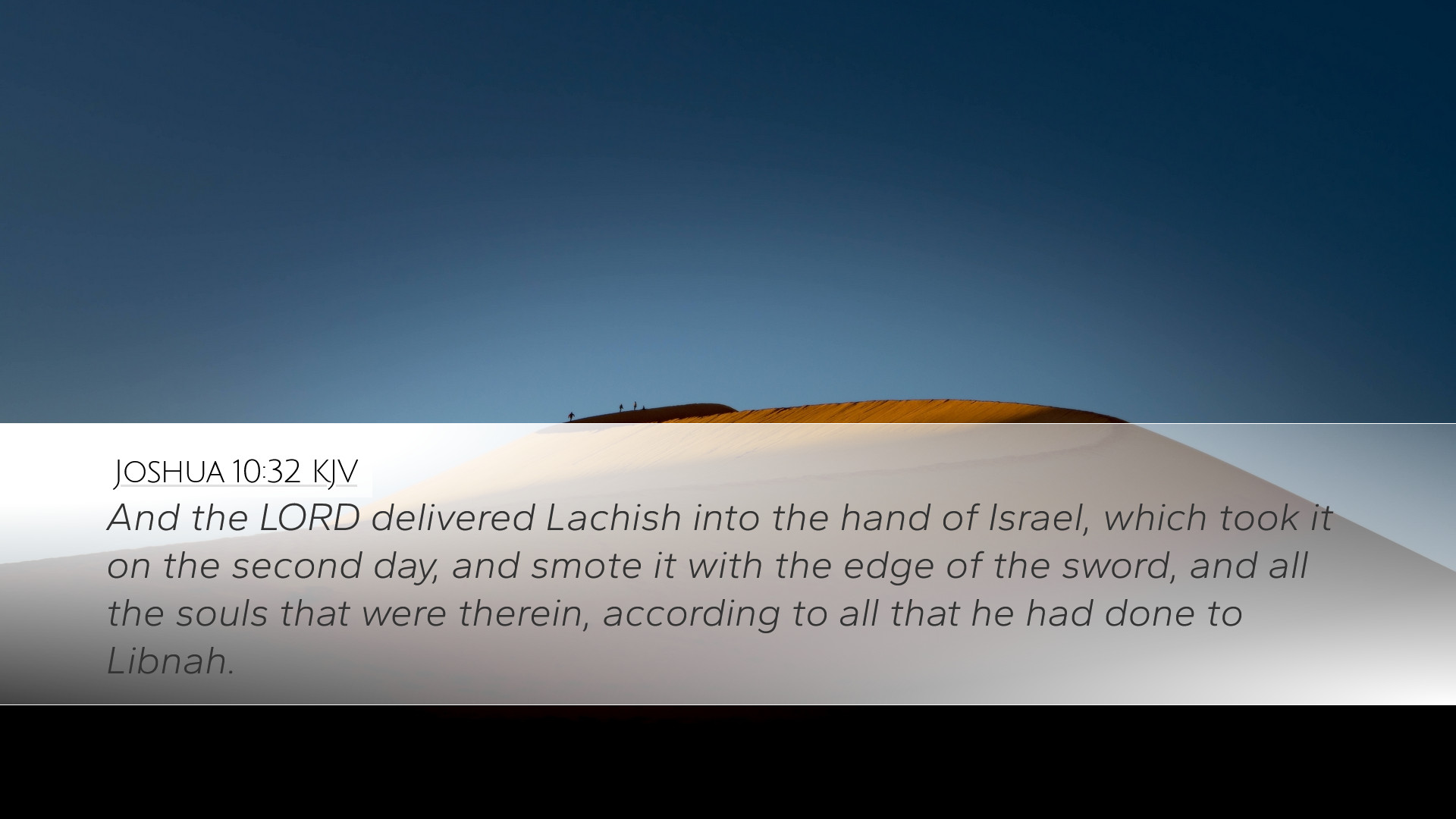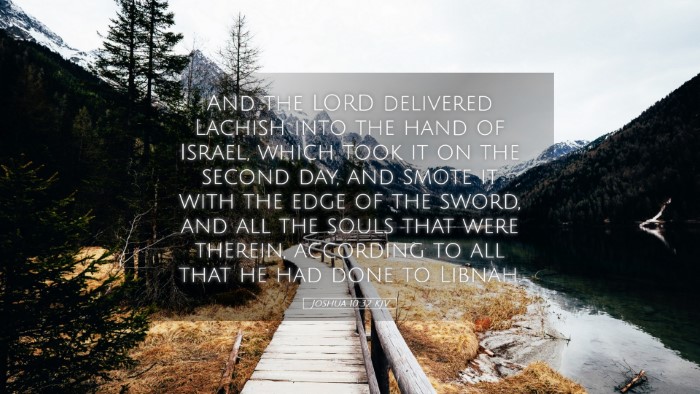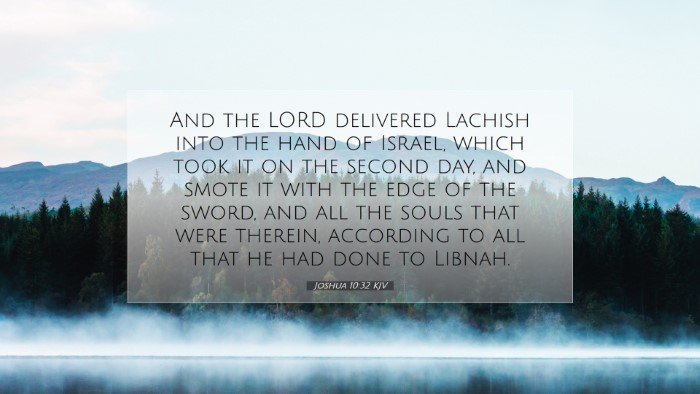Commentary on Joshua 10:32
Joshua 10:32 states: "And the Lord delivered Lachish into the hand of Israel, which took it on the second day, and smote it with the edge of the sword, and all the souls that were therein he utterly destroyed that day, according to all that he had done to Libnah."
Introduction
This verse is a part of the larger narrative of the conquest of Canaan, illustrating God's faithfulness to Israel in fulfilling His promises. It serves as a pivotal reminder of divine intervention and the consequences of opposing God's chosen people.
Contextual Background
The conquest of Lachish occurs during Joshua's campaign against several Canaanite kings. Lachish was a fortified city, prominently located and key in the south of Israel. In the progression of Joshua’s military endeavors, the capture of Lachish is significant not only as a military victory but also symbolically represents the culmination of God's promise to Israel in granting them the land of Canaan.
Interpretative Insights
Combining insights from notable biblical scholars:
-
Matthew Henry:
Henry emphasizes the rapidity of Israel's conquests, noting that Lachish fell on the "second day." This illustrates both the power of God given to Israel and the preparedness of Israel to engage in battle. Henry draws parallels with earlier conquests, stressing the continuity of God’s support for Israel.
-
Albert Barnes:
Barnes notes that the destruction of Lachish serves as a warning to other cities of the dire consequences of resisting God’s will. The methodical destruction of its inhabitants is an aspect that Barnes explores, viewing it through the lens of divine judgment against those who continued in rebellion against God.
-
Adam Clarke:
Clarke provides a deeper analysis of Lachish’s significance in the context of its inhabitants and the moral implications of their destruction. He critiques the harshness of the judgment but affirms that the prevailing principle is to highlight divine sovereignty and righteousness in the execution of judgment against sin.
Theological Implications
This verse embodies several theological themes crucial for pastors, students, and scholars:
-
Divine Sovereignty:
The victory over Lachish illustrates the sovereignty of God in the affairs of nations. It reinforces the belief that God directs the history of His people and the political landscape is subject to His authoritative will.
-
Judgment and Mercy:
The destruction serves as a reminder of God’s judgment against sin and a call to repentance for nations and individuals alike. It suggests a juxtaposition between God’s unwavering justice and His mercy, as He desires all to come to repentance.
-
Covenantal Faithfulness:
The verse reflects God's faithfulness to His covenant with Israel. His promise to deliver their enemies is consistent throughout the narrative of Joshua, establishing a pattern of reliance on God's provisions and timing.
Application for Today
For contemporary readers, this passage serves numerous applications, including:
-
Faith in Divine Deliverance:
Just as God delivered Lachish into the hands of Israel, today believers are encouraged to trust in God’s power to overcome their own 'Lachishes'—the battles they face in life.
-
Reflection on Obedience:
The passage prompts an examination of personal and corporate obedience to God. Social and spiritual structures resisting God’s commands can expect consequences, urging reflection on how believers relate to divine truths.
-
Understanding God’s Justice:
Many grapple with the implications of divine judgment as portrayed in the Old Testament. This text calls for a nuanced understanding of justice, balancing it with God's desire for grace and restitution in Christ.
Conclusion
Joshua 10:32 not only contributes to the historical account of Israel's conquests but serves as a profound theological statement on God's sovereignty, judgment, and covenantal promises. In reflecting upon this verse, readers are invited to consider God's overarching plans and the pivotal role they play in the broader narrative of redemption found throughout Scripture.


